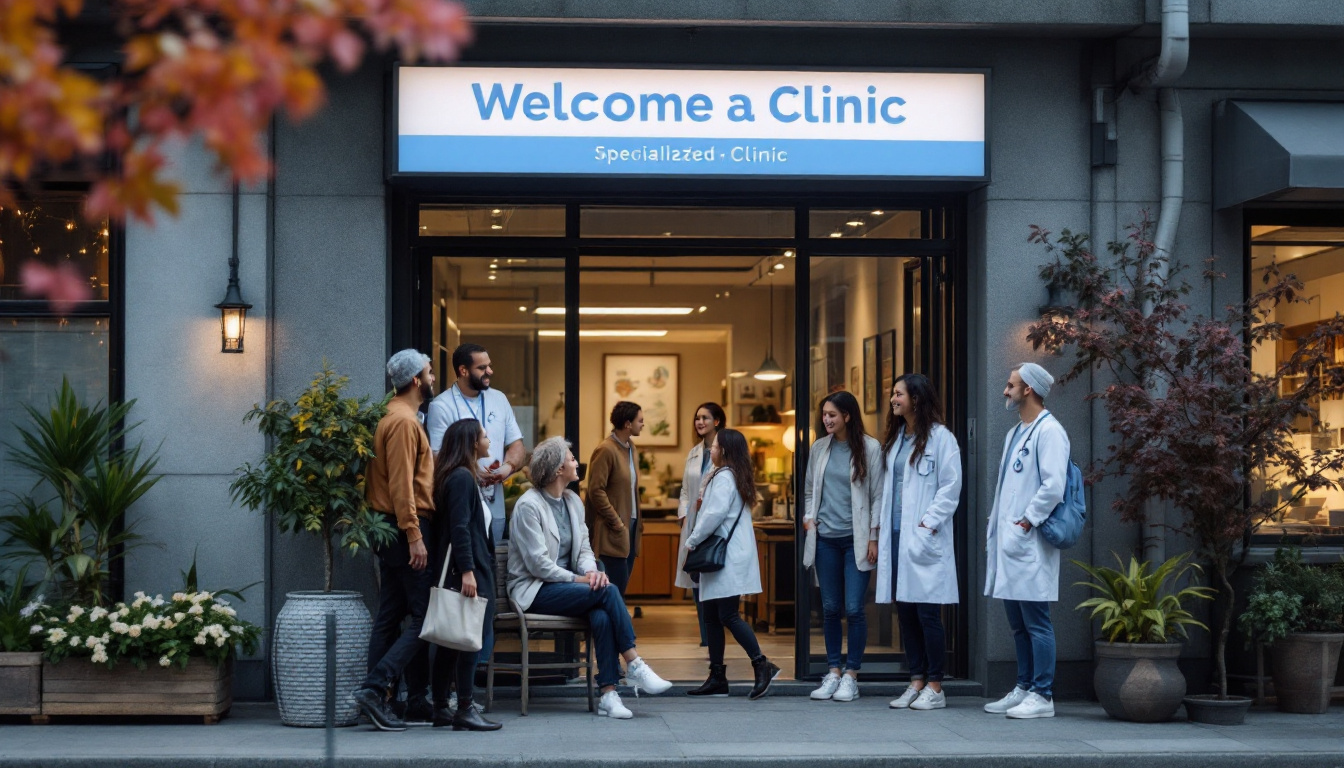Google Ads vs. Bing Ads for Seattle, WA Businesses: Which is Better?

When it comes to online advertising, businesses in Seattle, WA, face choices that can significantly impact their bottom line. Two of the biggest players in search engine marketing are Google Ads and Bing Ads. Both platforms offer unique advantages and functionalities, making it crucial for local businesses to assess which option aligns best with their marketing goals. In this article, we will explore key differences, audience demographics, cost comparisons, and provide insights on making an informed choice.
Key differences between Google Ads and Bing Ads
Understanding the distinct features of Google Ads and Bing Ads is vital for Seattle businesses. First and foremost, Google Ads operates on the largest search engine globally, capturing a significant market share. This means that businesses using Google Ads generally enjoy higher search volumes and a broader audience reach. The sheer volume of users on Google can lead to increased brand visibility and potentially higher conversion rates, making it a go-to platform for many marketers.
On the other hand, Bing Ads, while less popular, often allows advertisers to reach a different segment of users who may not engage with Google. Bing's integration with Microsoft products creates unique opportunities, especially for businesses targeting users on Windows devices and platforms like Xbox and Outlook. This integration can be particularly beneficial for companies that offer software or services compatible with Microsoft products, as they can leverage the built-in audience that Bing provides.
Another critical difference comes in the interface and functionality of the two platforms. Google Ads offers an extensive array of tools and features, providing deep insights into campaign performance. In contrast, while Bing Ads offers fewer features, this simplicity can be a boon for those just starting out in paid advertising. New advertisers may find Bing's straightforward setup process less daunting, allowing them to launch campaigns quickly and efficiently without being overwhelmed by options.
Advertising Options and Formats
Both platforms provide various ad formats, including search ads, display ads, and shopping ads. However, Google Ads takes the lead in terms of the variety and sophistication of advertising formats available. For instance, Google supports responsive ads and local inventory ads, catering to diverse marketing needs. These advanced formats allow businesses to showcase their products in a more dynamic way, adapting to user preferences and behaviors in real-time.
Bing Ads, though not as robust, offers unique features such as enhanced targeting options for demographic groups, which may be advantageous for Seattle businesses looking to specifically reach local audiences. Additionally, Bing allows for the integration of call extensions, which can be beneficial for local service-oriented businesses in attracting phone inquiries. This feature is particularly useful for businesses that rely heavily on direct customer interaction, such as restaurants or home service providers, as it can lead to immediate customer engagement.
Targeting and Reach
When it comes to targeting capabilities, Google Ads tends to offer more comprehensive options. Advertisers can utilize extensive keyword lists, detailed location targeting, and various bidding strategies. This versatility allows for fine-tuning that can optimize performance significantly. The ability to create custom audiences based on user behavior and interests further enhances the effectiveness of campaigns, enabling businesses to connect with potential customers more precisely.
Bing Ads, however, often boasts lower competition for certain keywords, allowing advertisers to achieve favorable ad placements without breaking the bank. For Seattle businesses that focus on niche markets, Bing can provide a cost-effective alternative that may yield high returns. Additionally, Bing's audience tends to be slightly older and more affluent, which could be advantageous for businesses targeting demographics that align with these characteristics. This demographic insight can help Seattle advertisers tailor their messaging and offerings to better resonate with potential customers, ultimately driving more effective campaigns.
Audience demographics for each platform in Seattle, WA
The demographics of users on Google Ads and Bing Ads can vary significantly. Google attracts a diverse user base that encompasses various age groups, interests, and online behaviors, making it a universal platform for reaching a wide audience.
Bing users, however, tend to skew slightly older, with a significant portion in the 35-65 age range. This demographic may be appealing for businesses offering products or services tailored for this age group, such as financial planning, healthcare, or home improvement. Moreover, Bing's users often possess higher household incomes, presenting a lucrative opportunity for premium brands.
Behavioral Insights
In Seattle, WA, understanding user behavior on each platform can enhance ad campaign strategies. Google users often demonstrate a propensity for immediate information seeking, perhaps leaning toward impulse purchases and swift decision-making.
In contrast, Bing users may engage in more extensive research before making a purchase. This behavior suggests that businesses targeting this audience may want to focus on more informative, value-driven content in their ads, potentially offering guides or comparisons to facilitate the decision-making process. Additionally, the longer engagement times on Bing can be leveraged by brands to create deeper connections through storytelling and detailed product showcases, which can resonate well with users who appreciate thoroughness in their purchasing journey.
Market Segment Reach
Seattle’s diverse market consists of tech-savvy younger individuals as well as established professionals. Google Ads is particularly resonant among the younger demographic linked to the technology and startup scenes, while Bing's slightly older user base may correspond closely with established enterprises and more traditional industries, which also has significant representation in Seattle.
Furthermore, the unique cultural landscape of Seattle, characterized by its vibrant arts scene and commitment to sustainability, influences user preferences across both platforms. Advertisers can capitalize on this by tailoring their messaging to highlight eco-friendly practices or local community involvement, which can attract attention from both younger and older demographics. For instance, campaigns that emphasize local sourcing or environmental impact may resonate strongly with Seattle's socially conscious consumers, regardless of the platform they are using. This approach not only enhances brand loyalty but also aligns with the values of the Seattle community, making it a strategic advantage for businesses aiming to thrive in this competitive market.
Cost comparison: CPC and ROI
Cost-per-click (CPC) is a critical metric for advertisers in Seattle, WA. Google Ads typically presents a higher CPC compared to Bing Ads, primarily due to its larger user base and increased competition for prime keywords. Businesses should expect to pay a premium for visibility on this platform. This premium often reflects the extensive reach and robust targeting options that Google provides, allowing advertisers to tailor their campaigns to specific demographics and interests, which can significantly enhance the effectiveness of their ads.

Bing Ads, however, generally offers lower CPC rates, allowing businesses to stretch their advertising budgets further. This is especially pertinent for small businesses that may not have as much funding for marketing. Additionally, Bing's audience tends to be slightly older and often has higher disposable income, which can be advantageous for certain industries, such as luxury goods or services targeting an older demographic. Advertisers should consider these factors when deciding where to allocate their marketing resources.
Return on Investment (ROI)
When evaluating ROI, Seattle businesses often find that, despite higher CPC on Google Ads, the volume of traffic and conversion opportunities can lead to a better overall return. Hence, a well-optimized Google Ads campaign can yield impressive results if executed effectively. Moreover, Google’s advanced analytics tools provide insights into user behavior, enabling businesses to refine their strategies continually and maximize their ad spend. The ability to test different ad formats and messages allows for a more dynamic approach to advertising, ultimately driving better performance.
In contrast, Bing’s lower costs may parallel a lower volume of traffic, yet many advertisers find that the conversion rates can be surprisingly strong due to less competition and less clutter in the ad space. This can create opportunities for businesses to capture leads that might be overlooked on busier platforms. Furthermore, Bing’s integration with Microsoft products, such as Outlook and Office, allows for unique advertising opportunities that can engage users in a different context. Thus, businesses must conduct their analyses, balancing cost against potential leads and sales. Understanding the nuances of each platform can empower advertisers to make informed decisions that align with their specific goals and target audiences.
How to choose the right platform for your business
Choosing between Google Ads and Bing Ads is a considerable decision that should take into account several factors. First, businesses must evaluate their target audience and determine which platform aligns better with their customer base and marketing objectives.

Secondly, consider the budget. If a company is small with limited funds, starting with Bing Ads could be wise to capture traffic without crippling expenses. For those with more extensive budgets, experimenting with Google Ads could yield substantial traffic gains that justify the cost.
Testing and Strategy Development
Ultimately, testing different campaigns on both platforms may provide a clearer understanding of which one performs better for a specific business. Many Seattle companies find success by running parallel campaigns and using performance data to inform their marketing strategies moving forward.
Long-term Goals
Businesses should also align their choice with long-term marketing goals. For businesses seeking to build brand awareness and engage with a broad audience, Google Ads could be the more appropriate choice. Conversely, Bing may be better suited for local targeting and cost-effective advertising for specific products or services.
Examples of businesses succeeding with both platforms
Various businesses in Seattle have thrived by leveraging both Google Ads and Bing Ads effectively. For instance, a local home improvement company saw excellent returns by initially focusing on Bing Ads to gain traction in their local market. Once established, they expanded into Google Ads for broader reach.
Similarly, a Seattle-based online retailer found significant success on Google Ads with targeted shopping ads, while simultaneously running Bing Ads campaigns that focused on seasonal promotions. This multi-platform strategy allowed them to maximize their visibility across diverse customer demographics.
Collaborative Approaches
Many businesses today opt for an approach that blends both platforms, allowing them to capitalize on the strengths of each. By allocating budget segments strategically, businesses can achieve comprehensive coverage while optimizing expenditures and enhancing overall marketing performance.
In summary, choosing between Google Ads and Bing Ads involves careful consideration of audience demographics, costs, and business goals. By understanding each platform's unique attributes, Seattle businesses can make informed decisions that ultimately drive success.

As a Google Ads expert, I bring proven expertise in optimizing advertising campaigns to maximize ROI.
I specialize in sharing advanced strategies and targeted tips to refine Google Ads campaign management.
Committed to staying ahead of the latest trends and algorithms, I ensure that my clients receive cutting-edge solutions.
My passion for digital marketing and my ability to interpret data for strategic insights enable me to offer high-level consulting that aims to exceed expectations.



















